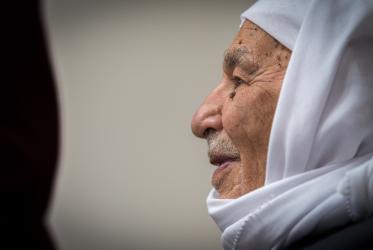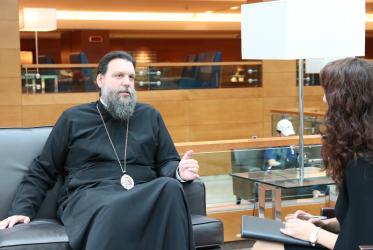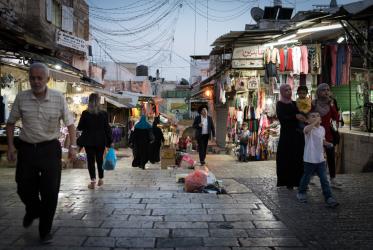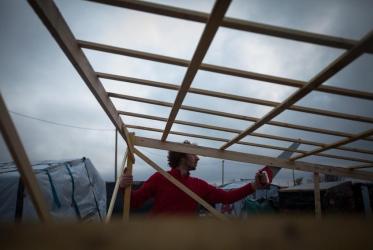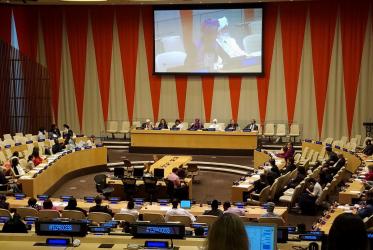Displaying 1 - 20 of 73
Human fraternity is a divine calling, says WCC general secretary
03 February 2019
Fr Alexi - a peacemaker in Syria
21 December 2018
How can you help refugees?
11 October 2018
WCC regrets USA withdrawal from UN relief for Palestinian refugees
03 September 2018
“Love will find a way”
23 August 2018
WCC condemns terror attack on evacuees in Syria
16 April 2017


